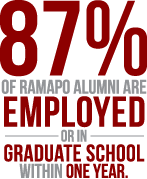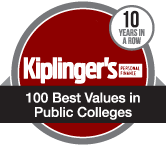College Catalog: 2014-2015
School of Social Science and Human Services (SSHS): Gerontology
Website: School of Social Science and Human Services
Gerontology is the interdisciplinary study of the social, physical, and cultural dimensions of aging. Career options for gerontology students are expanding rapidly and include administrative work in government agencies on aging, in hospitals and nursing homes, in the law, and in recreational programs for older people. Direct service provision may include home health care workers, social workers, psychologists, and hospital workers. In addition, there are burgeoning business opportunities geared toward the older segment of the population in all areas of society. The gerontology minor program for matriculated students also welcomes service workers presently working with the aging population, in agencies or institutions, to take courses in gerontology.
Gerontologists are concerned with creating environments for successful aging and with ensuring the maintenance of quality life experiences for the aging in our population. Increasing numbers of Americans are living longer, resulting in a need for people trained in understanding the complex interactions between aging and society.
The gerontology program at Ramapo College is designed to introduce students to the various aspects of aging: biology, physiology, psychology, sociology, and issues of death and dying. In addition, we require gerontology students to do fieldwork with the aged or in any agency devoted to issues of aging to enable hands-on experience. The study of gerontology is highly recommended for students majoring in social work, psychology, sociology, nursing, or business administration and will enhance the academic and future professional journeys of students of all majors.
The gerontology faculty come from a variety of disciplines, within the college, and collectively have tremendous experience in the field. Some of their areas of expertise include:
- the development of programs for caregivers
- direct service provision for older adults
- art therapy
- issues of death and dying
- human development across the life cycle
- community programs for older adults
- At least 1/2 of the courses fulfilling a minor must be distinct from the student’s major. That is, three of the five courses required for a minor cannot be used towards fulfillment of major requirements. A school core does not need to be completed for a minor. Minors are open to students regardless of school affiliation.
GERONTOLOGY MINOR
- Subject & Course # – Title & Course Description
- REQUIRED:
- PSYC 212 - PSYCHOLOGY OF AGING
- SOCI 205 - SOCIOLOGY OF AGING
- SOSC 314 - DEATH AND DYING
- SWRK 210 - INTRODUCTION TO GERONTOLOGY
- ELECTIVES: SELECT ONE (contact the convener for new course electives):
- ARTS 219 - ART AND INTERACTION
- LAWS 310 - LAW AND THE ELDERLY
- SOSC 316 - FACING DEATH AND LOSS IN LATER LIFE
- SWRK 263 - HUMAN BEHAVIOR AND SOCIAL ENVIRONMENT II: LIFE CYCLE OR
- Relevant Co-Op or Independent Study in a Topic Related to Aging
- In addition, a 40-hour gerontology-related field experience is required. This can be done in conjunction with one of the other gerontology courses, such as “Death and Dying” or “Art and Interaction”, or as part of an internship requirement for a major, such as Social Work, Nursing, Law and Society or Psychology. Some examples of settings students have utilized to meet this criteria include: hospitals, adult day programs, senior centers, nursing homes, and more. Required field internships for a variety of majors, in relevant settings, have often met this required field component.
School of Social Science and Human Services Website
Faculty Profiles






